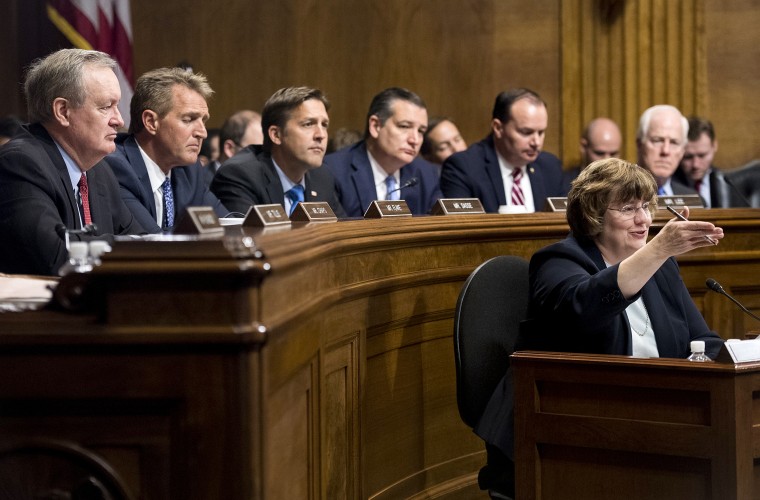This week, reading men like Sen. Lindsey Graham, R-S.C., National Review editor Rich Lowry and National Review Institute senior fellow David French call into question accusations against Trump Supreme Court nominee Brett Kavanaugh on the theory that someone surely would’ve reported gang rapes, I’ve been thinking a lot about Whit Stillman’s 1990 film “Metropolitan.” The portrait of young, wealthy white preppies in the 80s has been on my mind partly because I went to public schools, so nearly all of my reference points for that class of people — to which Kavanaugh also belongs — come from movies, but also because it’s where I first learned the phrase “pulling a train” as a synonym for gang rape.
To be fair, I probably wouldn’t have called it “gang rape” back when I first saw it, when I was 15 years-old; neither do the characters in “Metropolitan.” The phrase comes up when Nick (Chris Eigeman) finally explains his hatred of Rick Von Sloneker (Will Kempe), a titled aristocrat on the edge of their social circle. It has to do with a girl named Polly, who suffered from depression and spent a summer caught in Rick’s charming web. “Polly was a bit of a masochist, and prone to drink too much… When Von Sloneker had gotten her blind drunk one night, he talked her into pulling a train.”
Nick intends for his audience to understand this as a serious violation and Von Sloneker as a villain, and yet still he describes it in terms of a victim’s weaknesses and her alleged agreement to be penetrated by three men while drunk to the point of incapacitation. That was about the best you could hope for in terms of sensitivity before “acquaintance rape” became a household phrase.
Next, Cynthia (Isabel Gillies) jumps to exonerate Von Sloneker: “She was just some girl who had a crush on him, but who he hardly knew. She’d always had psychological problems, and was in fact a pathological liar.” In those few words, we see how efficiently victims can be smeared on multiple fronts, even by other girls and women: Polly was needy, she was crazy and she was a liar. How could a reasonable person believe anything she said?
I offer this scene as a perfect time capsule of 1980s preppy attitudes toward what we now understand to be gang rape. Yes, it’s fictional, but we don’t have to look far to find its echoes in news of the decade. A Chicago Tribune article from 1988 quotes Bernice Sandler, head of the Project on the Status and Education of Women at the Association of American Colleges, saying she knew of 80 cases of group sexual assaults on college campuses in the previous five years. The most comprehensive survey of college students on the prevalence of acquaintance rape, reported by Robin Warshaw in 1988’s “I Never Called It Rape,” found that 16 percent of male students who committed rape and 10 percent who attempted it were involved in assaults with more than one attacker.
As for high school students, in 1986, two boys from St. Marks Preparatory School in Southboro, Mass., were charged with “juvenile delinquency by reason of rape and kidnapping” after inviting “male students throughout the dorm” to see a drunk, half-naked 10th-grade girl. In 1989, members of an elite high school sports team in Glen Ridge, New Jersey, lured a girl with cognitive disabilities to a basement and took turns raping her. As Bernard Lefkowitz reports in “Our Guys: The Glen Ridge Rape and the Secret Life of the Perfect Suburb”, most of the town rallied around the attackers and shunned the victim. Two years ago, author Jessica Knoll wrote in “Lenny” about her gang rape at age 15, while she attended a “tony private high school… surrounded by old money strivers.” In her memoir, “Hunger,” New York Times best-selling author Roxane Gay detailed being gang-raped by a boy she liked and his friends, after which they told several classmates and she was shamed instead of them.
I could easily continue to catalogue the pain of real girls, in real towns, caused by real boys engaged in what is often framed as a perverse male bonding ritual. Or we can stipulate that, regardless of what is proven or ever can be proven about Brett Kavanaugh’s youthful behavior, incidents like the ones reported by Christine Blasey Ford, Deborah Ramirez and Julie Swetnick — incidents like the one Mark Judge’s ex-girlfriend Elisabeth Rasor says he told her about — absolutely have been committed by boys with money, connections and bright futures.
Meanwhile, a great many victims were left to live with their traumas, even if they “never called it rape.” The language and analysis that would contextualize these incidents as criminal sexual violence simply had not gone mainstream yet when Kavanaugh and these women were teenagers. A girl who spoke out about being the victim of “a train,” rather than being supported, would have gained a reputation for being “a little bit nutty and a little bit slutty,” as then-conservative activist David Brock famously wrote of Anita Hill.
Knowing all this, it’s not hard to understand why many victims wouldn’t report their assaults for years, or why young people who knew of such attacks this would continue to go to parties without telling the authorities. If the Senate Judiciary Committee still has any pretenses to caring about women’s health and safety, they must treat these allegations seriously and support a thorough investigation. I won’t hold my breath.



